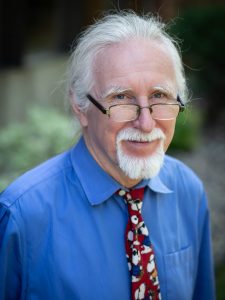 By Bob Hulteen
By Bob Hulteen
Soon after arriving at Concordia College as a student, I declared my certainty that God was calling me into ordained ministry. So sure was I that I left my anticipated math major behind and started talking humanities, Greek, and Hebrew classes. I even served two terms as president of the Cobber pre-seminarian club, Mathetai.
Then I met Charles Lutz. He was working in communications for the ALC (American Lutheran Church) down in Minneapolis at the time. A lay social ministry specialist, he was invited up to Concordia to present at a “teach in” some students had planned on resisting the possible re-instatement of the military draft. Chuck had helped write the ALC social statement on military service and young people, and was well-versed on the topic. (He is a faithful member of Lutheran Church of Christ the Redeemer in Minneapolis and author of several books.)
“All pastors and deacons (as well as other church staff members) have borne a great burden the last year-and-a-half.”
I was eating lunch with Mr. Lutz in Concordia’s main cafeteria. I was intrigued by his encouragement that the church not only needed pastors, it also needed what he called “radically committed laypeople.” He wasn’t making a pitch for a political philosophy, but was suggesting that there is a vocation of working for the church without being an ordained person. We talked through the rhubarb pie that I had with my lunch and were still chatting when supper was served four hours later. I was enraptured with this new vision for faithful response to God’s redeeming love, … that didn’t require wearing a black shirt and a collar.
I realized that I was feeling called to work in the church, or alongside the church, much more than I was called to be an ordained leader in the church. I would work with pastors, but not be one.
I’M NOT A pastor and I don’t play one on television. But I am aware that all pastors and deacons (as well as other church staff members) have borne a great burden the last year-and-a-half.
The pivot required to move from the familiar and traditional to the new and innovative created anxiety and doubt. Many church leaders have confessed a feeling of ineptness and guilt for not being ready for this culture-changing pandemic. And now, as there is some transition happening, I hear pastors regretting decisions made and missed opportunities. (They are being hard on themselves.)
I am saying this because I need all you readers to know: Your rostered leaders are tired and hurting – at least many of them are. This would be a good time to do some pastoral care – by which I mean caring for your pastors (and deacons … and musicians and youth workers and communicators and admins and custodians and more).
“The pivot required to move from the familiar and traditional to the new and innovative created anxiety and doubt.”
Often, we as lay folk are pretty hard on our clergy. The range, of course, can be from passive aggressive behavior to out-and-out harassment of varying kinds. We can be downright mean and unhealthy. (Of course, religious leaders are not exempt from this behavior either, but that’s a story for another day.)
I’m asking you, my fellow lay people, to be conscious of the astounding work that so many of our ordained leaders (and their staffs) have been doing this last year. They rose to the challenge and found new ways to connect us as church. And find a way to thank them for their service to the church and the world.
So, see if you can offer a good word to your faith leader this week, or maybe even a piece of rhubarb pie. You never know when appreciation can change a life.

